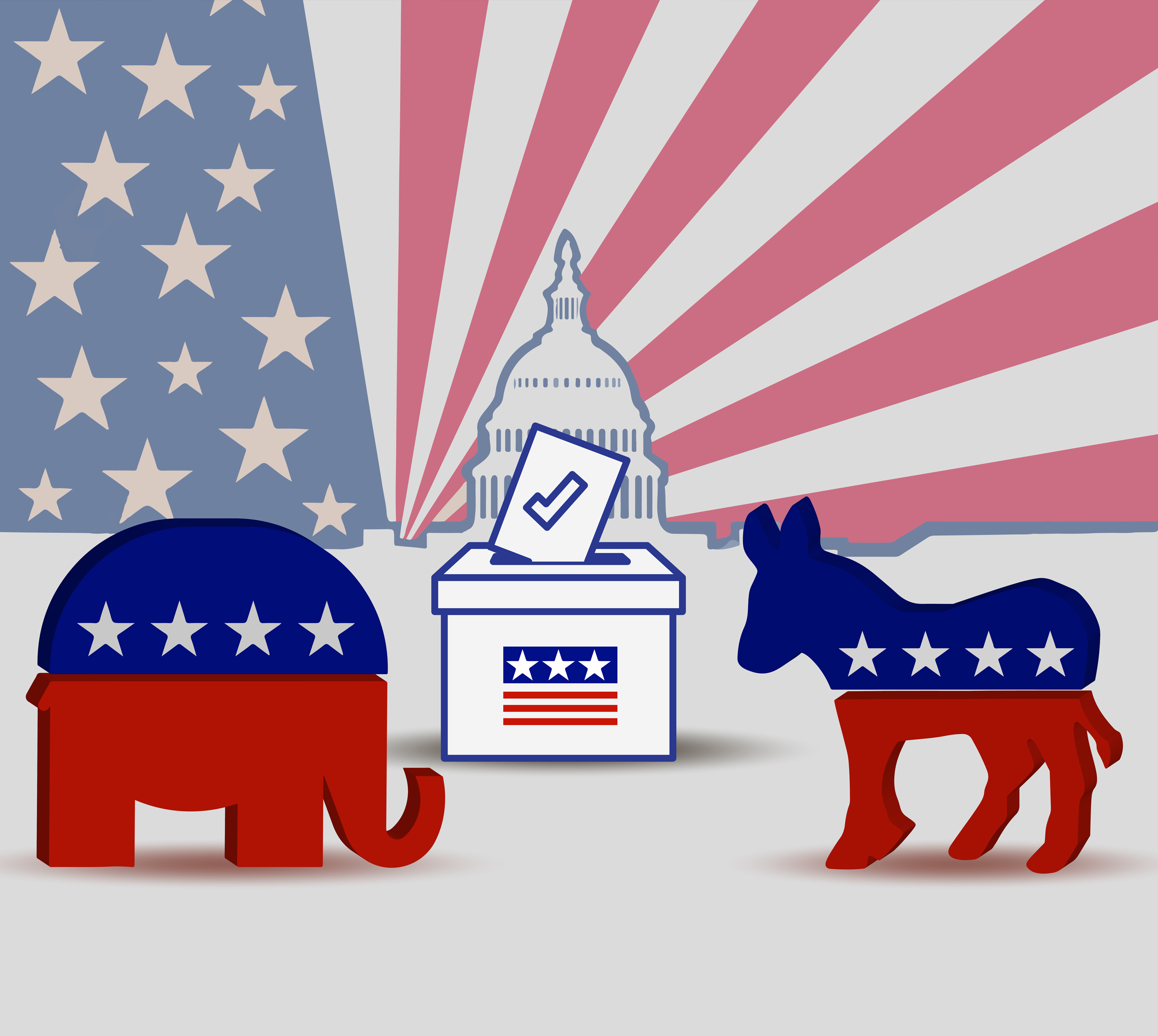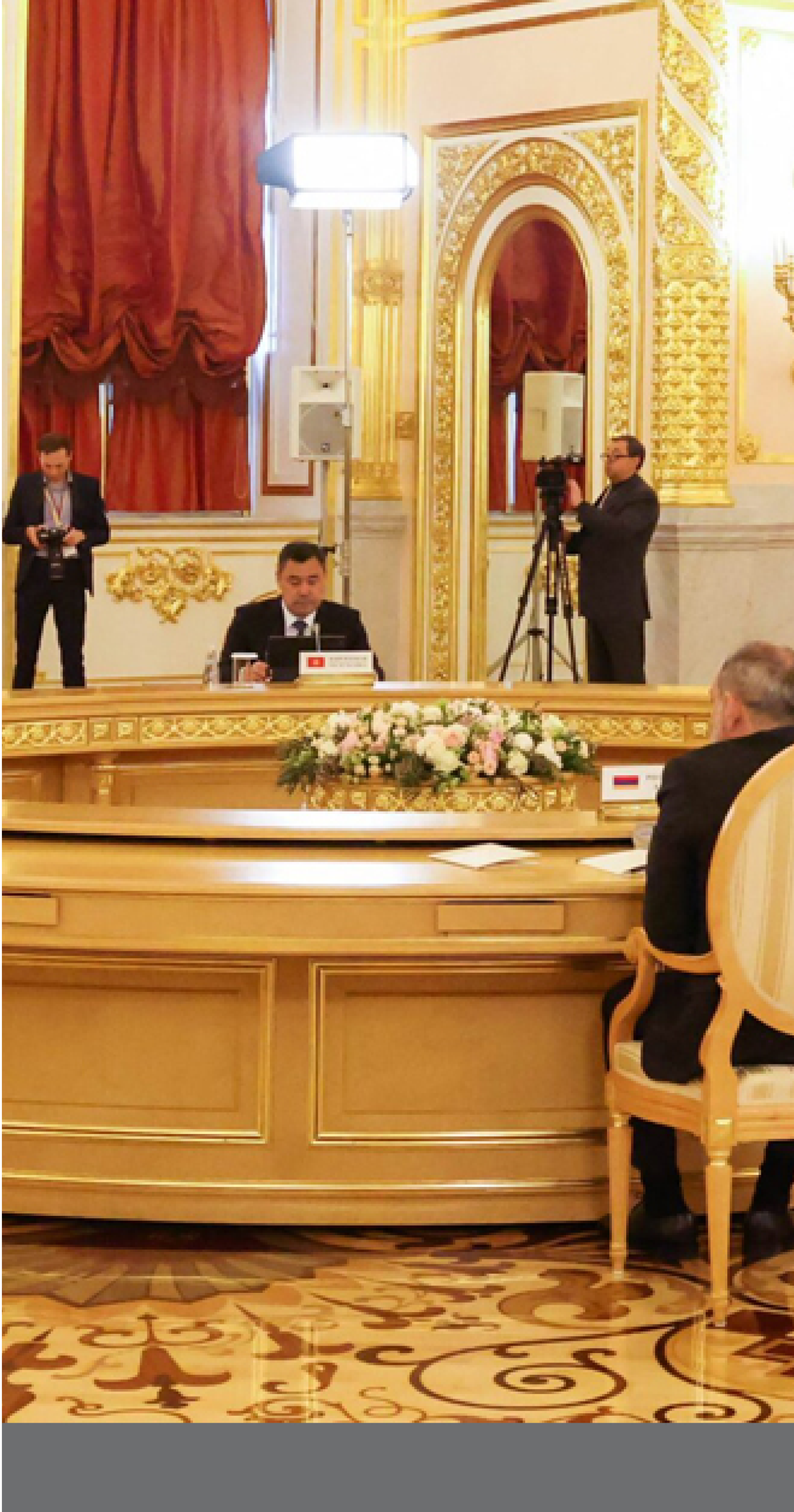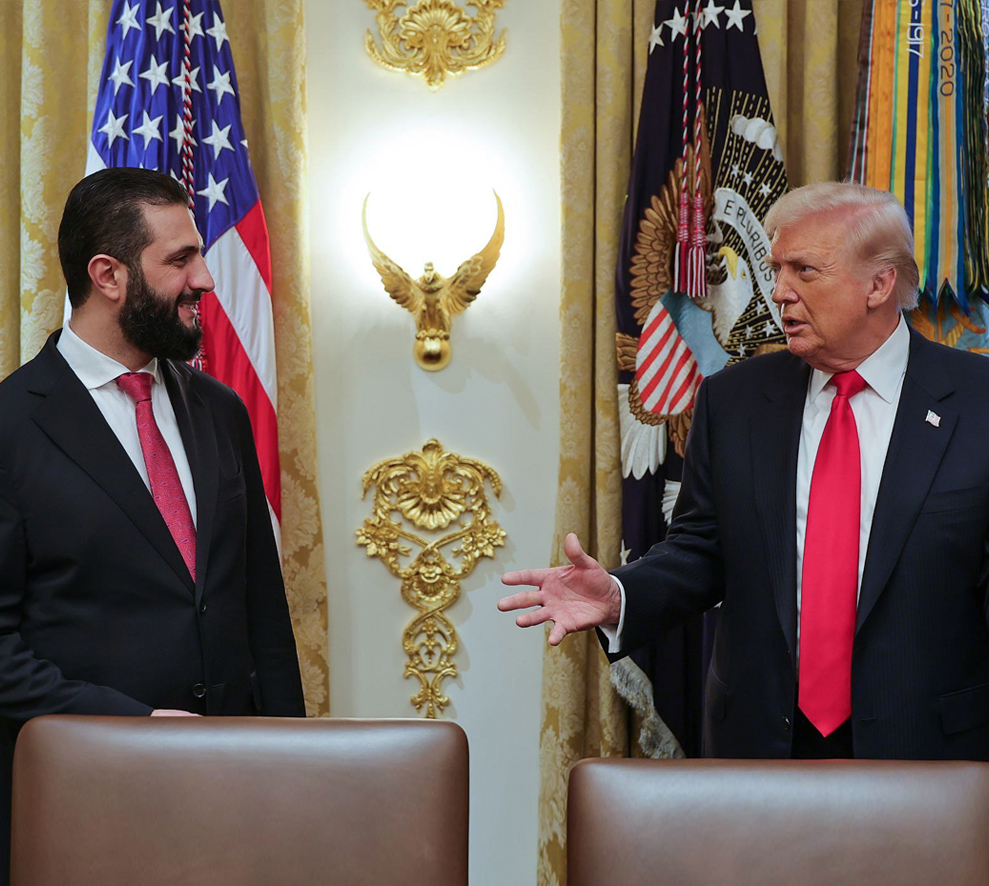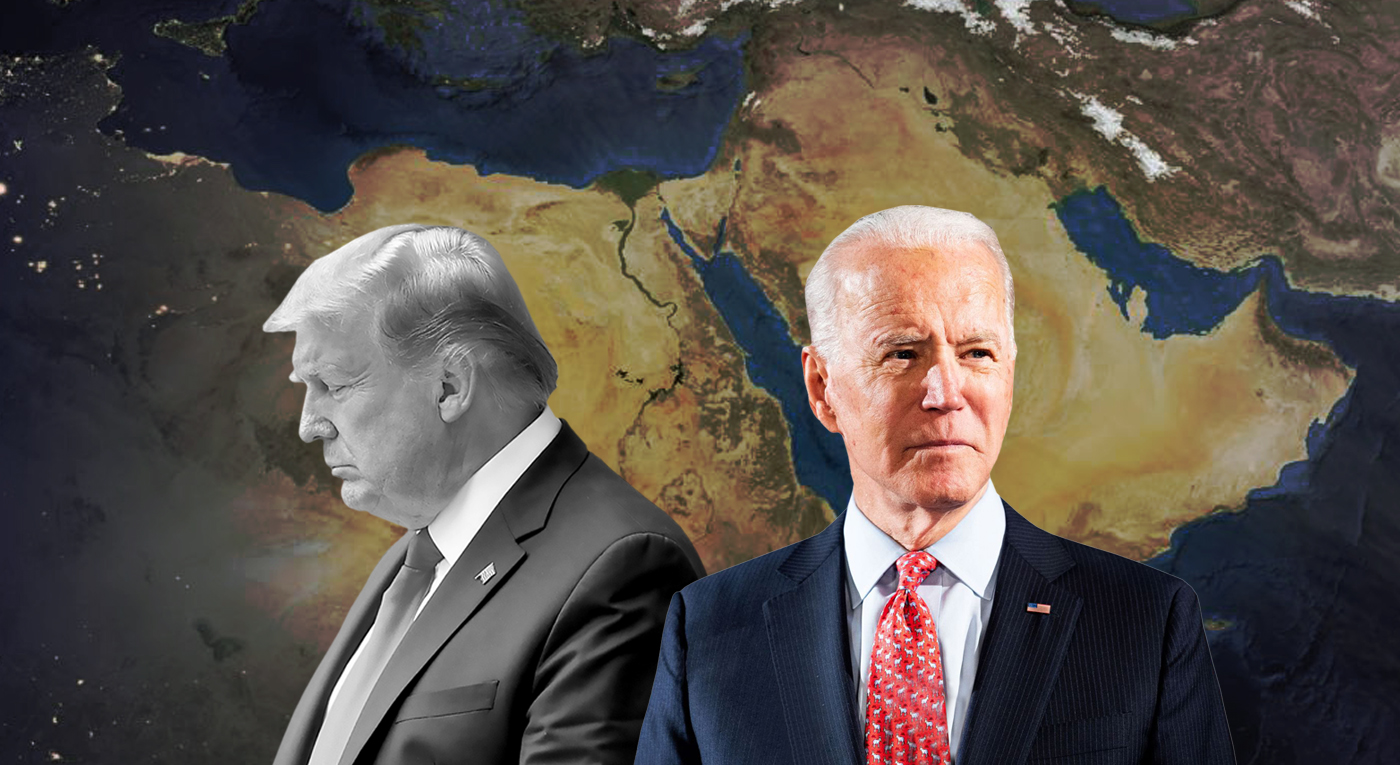Every four years, the world, armed with statistics on the one hand and predictions and expectations on the other, gaze at traditional, smart, and portable screens, waiting for the anticipated event, some of them are enthusiastic, others are showing indifference, while everyone awaits the results.
No, it is not the FIFA World Cup nor the Olympics, but rather the donkey and elephant race towards the Oval Office.
The donkey and the elephant are widely known as symbols of the Democratic and Republican parties in the US, which for decades have dominated the American elections, notably the presidential elections. During the presidential election campaign of 1828, President Andrew Jackson was nicknamed "jackass" and depicted as a mule by opponents — but he liked the nickname and ran with it to become America's seventh president and the first democratic.
The GOP elephant made its first appearance in its 1874 cartoon - twenty years after the party was founded - by cartoonist Thomas Nast and published in Harper's Weekly as an indication of the size and influence of the party. Nast who is considered to be the "Father of the American Cartoon" and among his notable works were the creation of the modern version of Santa Claus, which together with the "elephant" he created and the donkey which he was the biggest contributor to its spread, the mainstay of the American visual culture.
The donkey and elephant dominance over the American election scene is not for they are the only two parties in America. There are several other American parties such as the Green, the American Independent, the Constitution, the Libertarian, the Reform, the Communist USA, and other parties. Nevertheless, the indirect election system based on the Electoral College and the Winner-take-all principle prevalent in all states (except for Nebraska and Maine) is what created this state of polarization, which extended to most of American society.
On November 3, 2020, when the American voter votes he will not only elects the country’s president, but also the vice president in addition to the 435 members of the US House of Representatives, 35 of the 100 senators (12 of them are Democrats and 23 Republicans). In light of the bipartisanship in America, control over the Senate will be crucial as it influences US policy beyond the legislative role. The control of one party over the House of Representatives, the Senate, and the Presidency give it a rare ability to pass laws without much regard for the opinions of the other party.
Since it is not just a presidential election, but an inauguration of the “most powerful leader” in the world who will be on the throne of the largest economy and military capabilities, the latest and most accurate technology, and the most political power in the world, the US presidential election occurrence had become a global media event that people closely follow it from the primaries until after polling day "the Tuesday next after the first Monday in November”, despite the rare coverage of the US foreign policy during its campaigns.
The American presidential elections are considered a global event of which some people are more interested in it than Americans themselves, for example, 83% of Americans showed interested in the elections compared to 84% of Australians, according to the results of a poll conducted by the Pew Research Center on the 2008 US presidential elections.
Ordinary people, scholars, policymakers, and activists are all following the elections because what the next president does, or does not do, over the next four years will have a profound impact on all global events: from climate change to global security, and the technology race on the ground to armament in space. Also, people watch the elections as they affect international relations as a whole, and America's relationship with their countries, thus the future of their in the international relations system. Furthermore, given the importance of the US economic role in addition to the US role in global security and combating terrorism, elections are critical in terms of economic impacts, particularly on the prospects for global trade.
The world is keeping an eye on the donkey and elephant race either to obtain an in-depth idea of the American political system and its dynamics, clarify the backgrounds of the American view of the world, or to explore the characteristics and nature of the candidates and its expected approach to lead the world: Will America be unilateral or engage, will it actually lead the world or fall back and follow the “America first” approach?
Everyone has an opinion on US elections
In this context, It is normal that the opinions of international actors do not bear any weight in the elections of another country, especially the American, yet given the extent of the influence of lobbying organizations on the American foreign policy making, it is surprising that such opinions do not have an influence on the decisions of the president-elect and his administration in the future, particularly, in the case of Arab countries.
Some Arab countries faulted for favoring a candidate over another. Indeed, when Arab countries supported President Donald Trump, who stood against the Iranian hegemonic project and with the peace building plan in the region, accusations amounted to treason. The problem lies not in an Arab country supporting a candidate or having a preference based on its own interests, but rather in the lack of plans aimed at strengthening and developing relations if that candidate wins and alternative plans for the same goal if the other candidate wins.
Have the Arabs prepared for the victory of either Donald Trump or Joe Biden, is there an Arab lobby competent of creating a foothold for Arab interests on the map of the American administration, be it a republic or a democrat? Also, why were the Arabs not able to reach any kind of consensus, and thus the ability to form any Lobby that would transform Arabs from being passive and influenced by international policies into an actual actor in it? The Arab world and the "Middle East" are unquestionably remarkably important in American foreign policy, and irrespective of who is the president, he will not be able to ignore the "strategic interests" of the United States in the region, and yet, we have not benefited from this very important detail until now.
Likewise, we have not benefited from the Arab and Muslim communities in America, which they still suffer from “Islam phobia” and being labeled as terrorists from stereotypes and prejudices towards them. The Arab and Muslim communities in America almost outnumber Jewish communities, making them the biggest religious minority in the United States, but why have we not learned from the civic involvement of our Jewish cousins? As for those who fish in troubled waters, it is not a call for separatism at all, but a call for active participation and engagement in the political process.
Unfortunately, the Arab region is taken for granted only by its people. Arab citizens, the youth, in particular, suffer from extreme indifference that amounts to “political alienation,” which might be justified, in part, as a result of the horrors and scourge that our region has witnessed throughout its modern and contemporary history. However, in a time of the courageous diplomatic turns that we are witnessing today in the region, the questions that haunt me: should we not realize the importance of our geographical zone? Especially as we recognize the struggle of regional and international powers to gain influence over parts of it. Are we not more entitled and worthy of such influence. Is it not time for us to obtain a rightful place on the map of international powers and balances? Shouldn’t we remove the curse of the brewing war in our countries, make peace and reap its fruits: development, justice, prosperity, and a future for our youth and children?
Keep in touch
In-depth analyses delivered weekly.

Related Analyses:










.jpg-%D8%A8%D8%A7%D9%8A%D8%AF%D9%86-%D9%88%D8%AA%D8%AD%D8%AF%D9%8A-%D8%A7%D9%84%D8%B9%D8%B1%D8%A7%D9%82.jpg)

